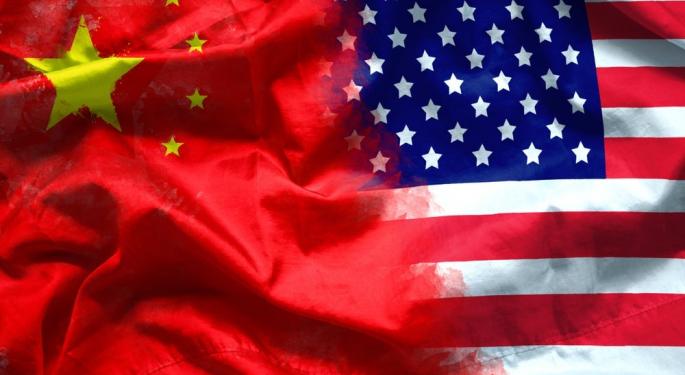Who Is Peter Thiel's Protégé, Michael Kratsios, Now Leading Trump's AI Strategy Amid Rising Tech Tensions With China
Michael Kratsios, a former deputy to venture capitalist Peter Thiel and one of Silicon Valley's most influential tech policy figures, has taken charge of the U.S. government's AI strategy amid escalating competition with China's tech giants.
What Happened: Kratsios was confirmed by the Senate to lead the Office of Science and Technology Policy (OSTP) last week.
His appointment comes as the Donald Trump administration intensifies its scrutiny of China's growing AI capabilities, especially following the emergence of DeepSeek—a Chinese AI startup that developed a powerful model at significantly lower costs than its U.S. counterparts.
Having served in the first Trump administration and later overseeing research initiatives at the Department of Defense, Kratsios is no stranger to navigating the intersection of national security and technological innovation, reported the Wall Street Journal.
Before returning to government, Kratsios worked at Scale AI, a startup specializing in AI training data.
Now, one of Kratsios's immediate tasks is reviewing thousands of industry submissions for the administration's AI policy framework, the report noted.
He also brings a global perspective to the role, having previously advised U.S. allies against adopting Chinese telecom infrastructure, particularly Huawei Technologies's 5G equipment.
Kratsios will be working alongside other high-profile figures in the administration, including David Sacks, Trump's AI and crypto policy leader, and Sriram Krishnan, a senior AI advisor.
Why It's Important: Previously, Chinese President Xi Jinping expressed concerns that the tensions with the U.S. could lead to China’s isolation, similar to the Soviet Union’s during the Cold War.
Moreover, in response to the U.S. economic offensive, China has reportedly been considering restricting certain exports to the U.S.
In March 2025, the U.S. added over 50 Chinese entities to an export restriction list, limiting their access to advanced technologies like those from Nvidia Corporation (NASDAQ:NVDA) and Advanced Micro Devices (NASDAQ:AMD).
Meanwhile, China is actively courting multinational companies, including Apple Inc. (NASDAQ:AAPL) and Eli Lilly (NYSE:LLY), to improve its business environment and attract foreign investment.
Photo by asiandelight on Shutterstock
Read Next:
Disclaimer: This content was partially produced with the help of Benzinga Neuro and was reviewed and published by Benzinga editors.
© 2025 Benzinga.com. Benzinga does not provide investment advice. All rights reserved.
Posted-In: artificial intelligence benzinga neuro Donald Trump Michael KratsiosGovernment News Tech Media



